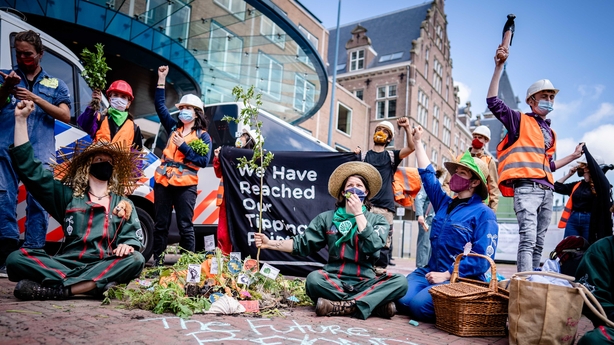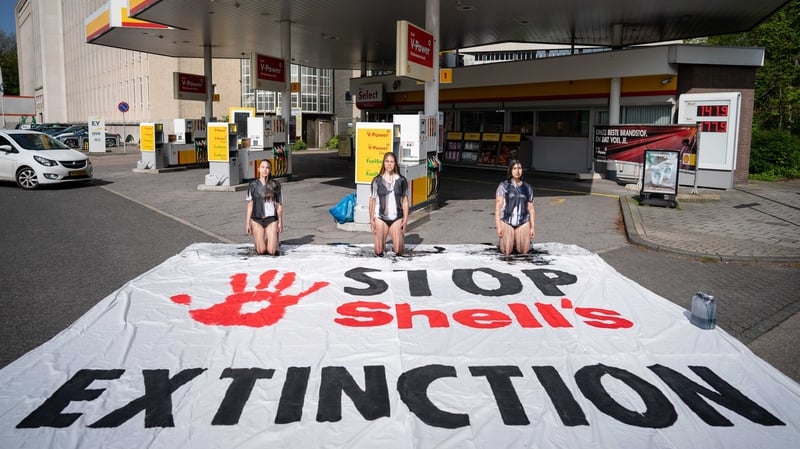A Dutch court has ordered Royal Dutch Shell to significantly deepen its planned greenhouse gas emission cuts, in a ruling that could pave the way for legal action against energy firms around the world.
At a court room in The Hague, Judge Larisa Alwin read out a ruling that forces Shell to reduce its carbon emissions by 45% by 2030 from 2019 levels.
The company currently has a target to cut the carbon intensity of its products by at least 6% by 2023, by 20% by 2030, by 45% by 2035 and by 100% by 2050 compared with 2016.
The case, taken by seven groups including Greenpeace and Friends of the Earth Netherlands, marks a first in which environmentalists have turned to the courts to try to force a major energy firm to change strategy.
It was filed in April 2019 on behalf of more than 17,000 Dutch citizens who say Shell is threatening human rights as it continues to invest billions in the production of fossil fuels.
The action was dubbed "the People versus Shell".
The Anglo-Dutch multinational said it was making serious efforts to cut emissions, but argued that there was no legal basis for the case and that governments were responsible for meeting targets under the Paris Agreementon climate change.
The case was one of a series around the world in which citizens and campaigners frustrated with inaction on climate change have hauled governments and big polluters before the courts.
The 2015 Paris accords commits all nations to cut carbon emissions to limit warming to two degrees Celsius above pre-industrial levels and encourages them to go down to 1.5 degrees.
The campaigners asked the court during hearings in December to order Shell to reduce emissions by 45% by 2030 in order to help achieve that goal.
The company said it would reduce the "net carbon footprint" of the products it sells by 30% by 2035, and reach 65% by 2050.

But ActionAid Netherlands executive director Marit Maij said that "big polluters like Shell have an outsized responsibility to help tackle climate change."
She said Shell's "strategy is to keep polluting while offsetting their emissions with vast tree plantations."
"This will require land the equivalent of three times the size of the Netherlands, which risks driving conflicts over food and land in the Global South", Ms Maij added.
Dozens of climate marchers handed in the lawsuit to Shell's Dutch headquarters in The Hague in April 2019 in what organisers said was the first case of its kind.
The company's lawyers told the court in December that it was already taking "serious steps" to support the global transition away from fossil fuels, and that the ultimate decision rested with governments.
It said there was no legal basis for the case, and no legal rule that made Shell's emissions unlawful.
Campaigners had hoped to repeat the success of a case brought by the green group Urgenda in which the Dutch Supreme Court in 2019 ordered the state to cut emissions by at least 25% of 1990 levels by the end of 2020.
The Netherlands, particularly vulnerable to climate change as a third of the country is below sea level, has pledged to reduce CO2 emissions by 49% by 2030.

